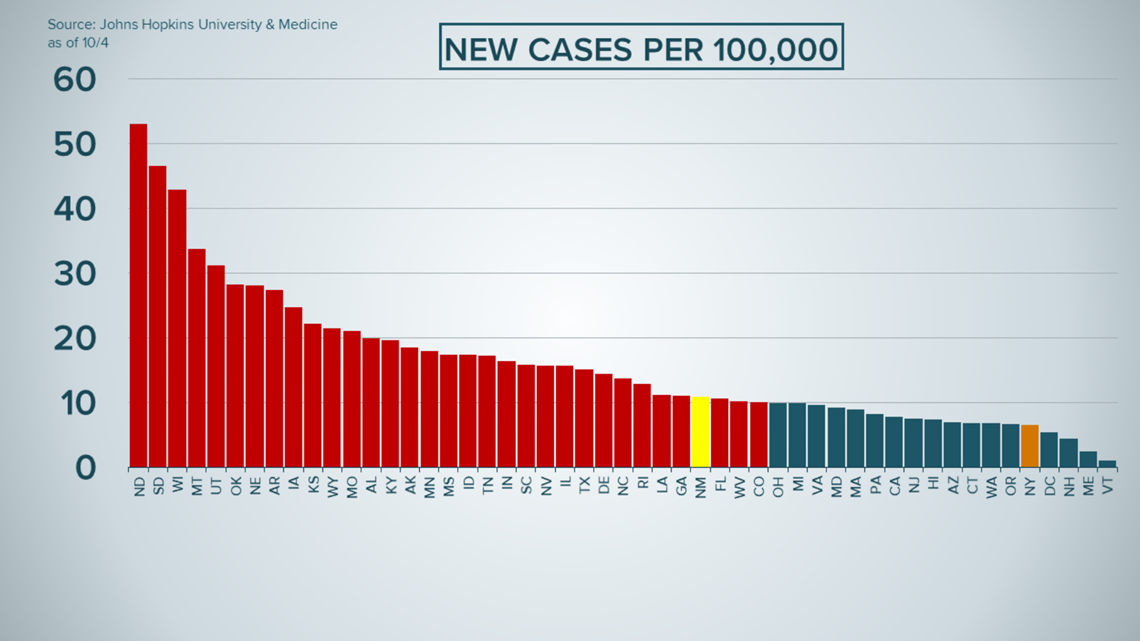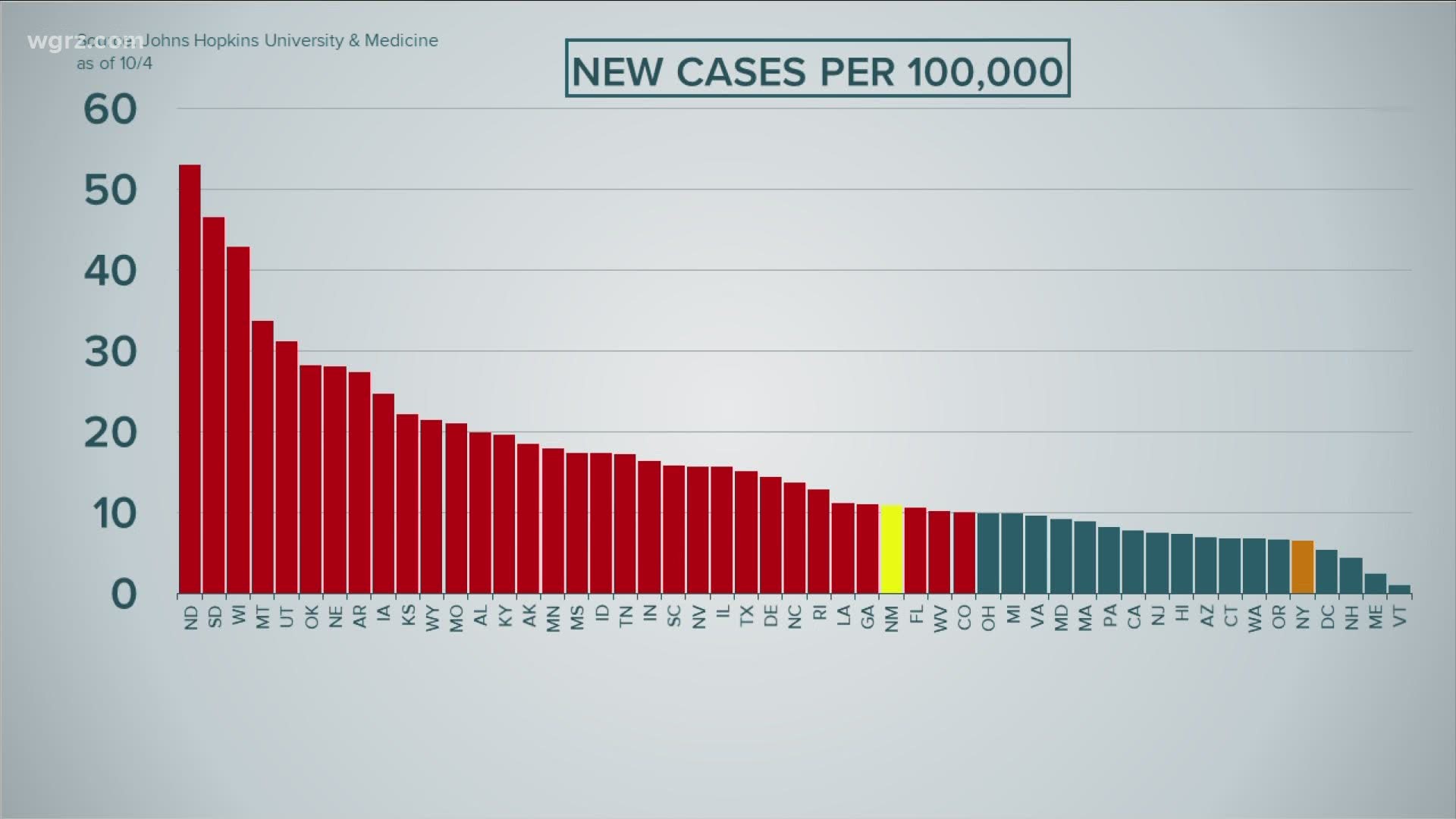BUFFALO, N.Y. — Governor Andrew Cuomo announced Tuesday that New Mexico has been added to New York State's COVID-19 Travel Advisory list. Meanwhile, no areas have been removed from the list this week.
According to New York State, New Mexico now averages more than 10 new cases per 100,000 residents. The advisory requires any individual traveling to New York State from areas with significant community spread to quarantine for 14 days.
Based on 2 On Your Side’s review of data from John Hopkins Coronavirus Resource Center the seven day rolling average of new cases per 100,000 people in the states of Ohio, Michigan, and Virginia were just below the threshold to be added to the list.
The average of new cases per 100,000 people in New York also increased 56 percent from last week. While still on the low end of the scale, the state is now averaging 6.58 new cases per 100,000 people. Last week the average was 4.21.


The full, updated travel advisory list is below:
- Alabama
- Alaska
- Arkansas
- Colorado
- Delaware
- Florida
- Georgia
- Guam
- Idaho
- Iowa
- Illinois
- Indiana
- Kansas
- Kentucky
- Louisiana
- Minnesota
- Missouri
- Mississippi
- Montana
- North Carolina
- North Dakota
- Nebraska
- New Mexico
- Nevada
- Oklahoma
- Puerto Rico
- Rhode Island
- South Carolina
- South Dakota
- Tennessee
- Texas
- Utah
- Wisconsin
- West Virginia
- Wyoming
Human coronaviruses are usually spread through...
- The air by coughing or sneezing
- Close personal contact, such as touching or shaking hands
- Touching an object or surface with the virus on it, then touching your mouth, nose or eyes before washing your hands.
Help stop the spread of coronavirus
- Stay home when you are sick.
- Eat and sleep separately from your family members
- Use different utensils and dishes
- Cover your cough or sneeze with your arm, hot your hand.
- If you use a tissue, throw it in the trash.
Lower your risk
- Wash your hands often with soap and water for at least 20 seconds. If soap and water are not available, use an alcohol-based hand sanitizer.
- Avoid touching your eyes, nose, and mouth with unwashed hands.
- Avoid close contact with people who are sick.
- Clean and disinfect frequently touched objects and surfaces.
- If you are 60 or over and have an underlying health condition such as cardiovascular disease, diabetes or respiratory illnesses like asthma or COPD, the World Health Organization advises you to try to avoid crowds or places where you might interact with people who are sick.

